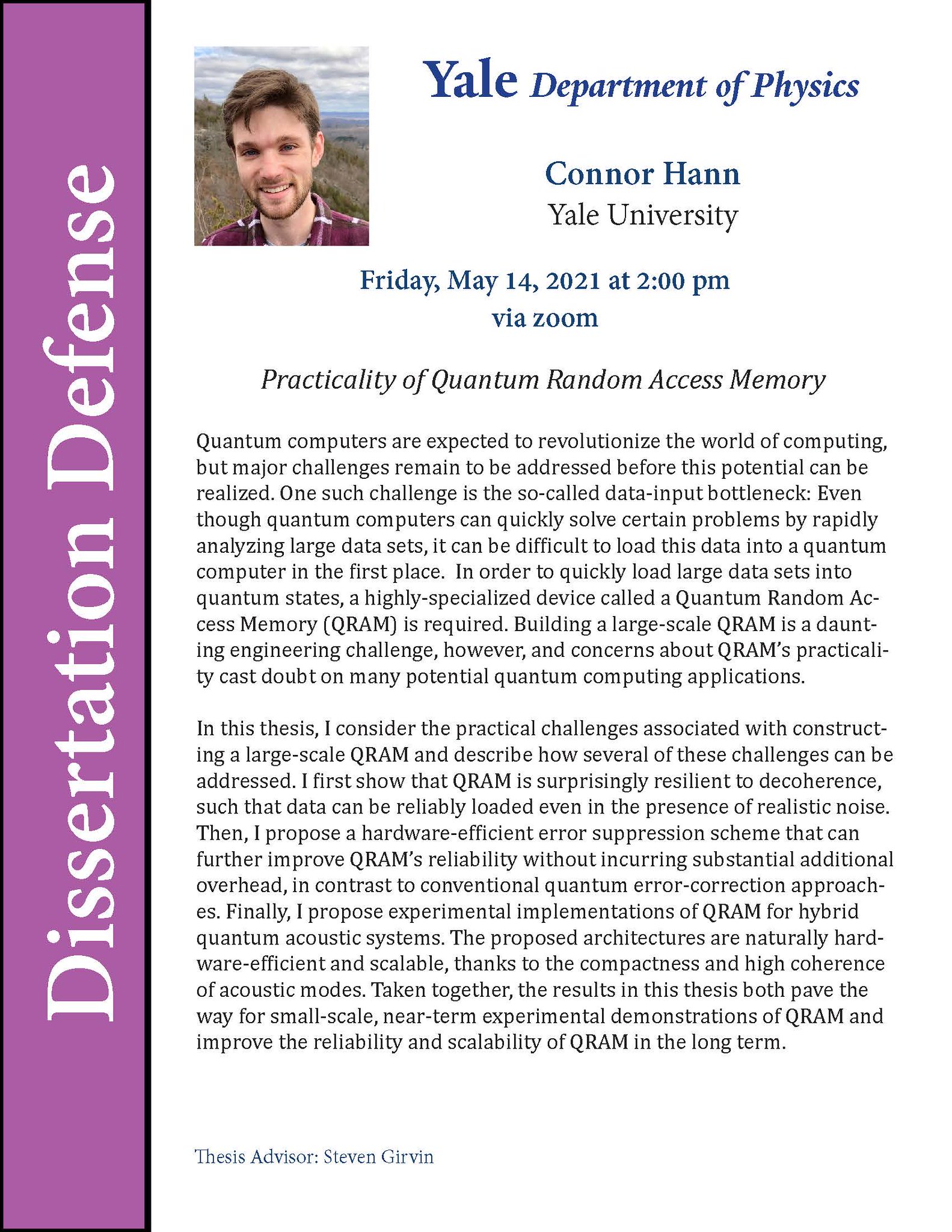
Quantum computers are expected to revolutionize the world of computing, but major challenges remain to be addressed before this potential can be realized. One such challenge is the so-called data-input bottleneck: Even though quantum computers can quickly solve certain problems by rapidly analyzing large data sets, it can be difficult to load this data into a quantum computer in the first place. In order to quickly load large data sets into quantum states, a highly-specialized device called a Quantum Random Access Memory (QRAM) is required. Building a large-scale QRAM is a daunting engineering challenge, however, and concerns about QRAM’s practicality cast doubt on many potential quantum computing applications.
In this thesis, I consider the practical challenges associated with constructing a large-scale QRAM and describe how several of these challenges can be addressed. I first show that QRAM is surprisingly resilient to decoherence, such that data can be reliably loaded even in the presence of realistic noise. Then, I propose a hardware-efficient error suppression scheme that can further improve QRAM’s reliability without incurring substantial additional overhead, in contrast to conventional quantum error-correction approaches. Finally, I propose experimental implementations of QRAM for hybrid quantum acoustic systems. The proposed architectures are naturally hardware-efficient and scalable, thanks to the compactness and high coherence of acoustic modes. Taken together, the results in this thesis both pave the way for small-scale, near-term experimental demonstrations of QRAM and improve the reliability and scalability of QRAM in the long term.
Thesis Advisor: Steven Girvin (steven.girvin@yale.edu)